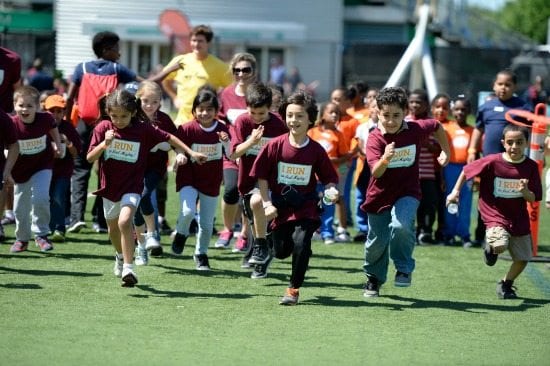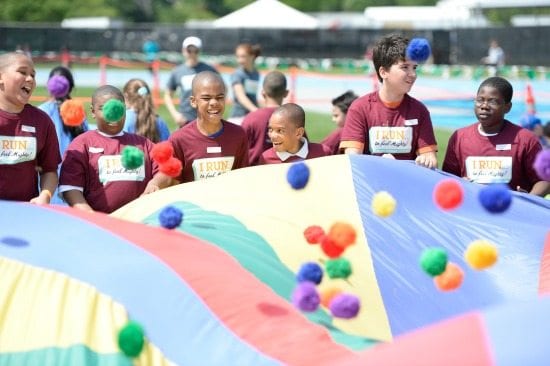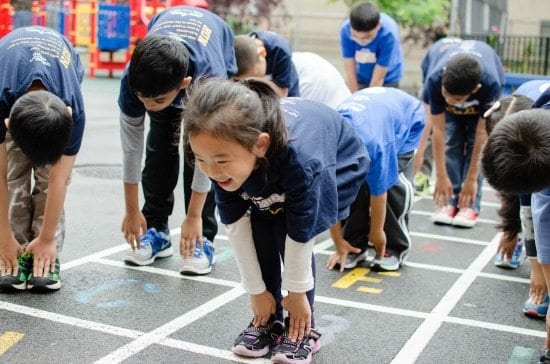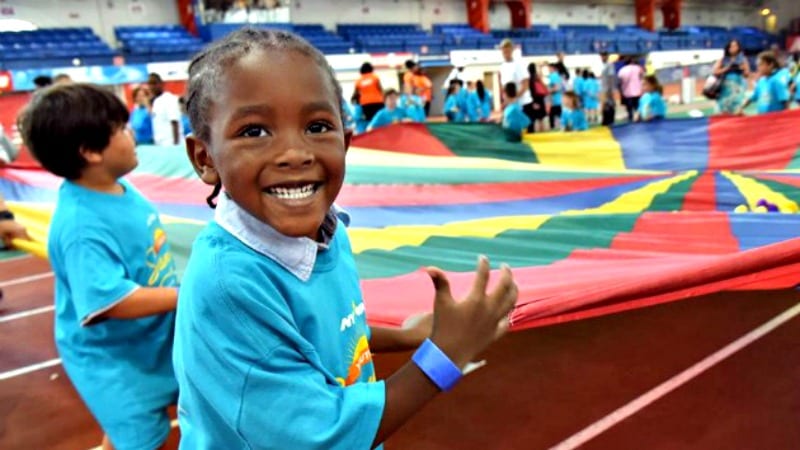As an educator, you’re probably already aware of how important it is to keep kids moving. Gym class, recess, free time—these are some of the most essential parts of a child’s school day. The American Heart Association says children need at least 60 minutes of physical activity every day, and experts recommend that schools supply at least half of this time. However, less than 10 percent of schools nationwide are providing kids with daily physical education. Since studies show that active kids actually learn better and test higher, here are 11 fun ways to integrate physical activity into your student’s daily routine.
1. Make an activity jar.
Fill up your jar with ideas for activities such as “10 squats” or “7 jump-ups.” When you see that kids are kind of running out of energy or need a boost in some way, pull an activity out of the jar. Everyone should participate, and hopefully it’ll add a little zip to the day!
2. Stand and walk around at the top of each hour.
You know the magic of Fitbit and Apple Watch telling you to get up and move when you’ve been sitting too long? This same kind of logic can be applied to your students. Try setting a timer as a reminder for everyone to get up and move.

3. Get kids to run.
When your students add a little running to their day, they benefit both physically and mentally. Try this Animal Run game—your students won’t even realize how much exercise they’re doing! It’s sneaky, but your students will learn how it feels to run at different speeds by mimicking different animal speeds. It’s very important to make running fun along the way! The Mighty Milers running program with New York Road Runners does a great job of this by encouraging running and getting students to log a marathon. When students reach 26.2 miles, they get a medal from the program—and a huge sense of accomplishment.

4. Dance before or after a lesson.
Use a music video or a current top 40 hit to get the kids warmed up for a lesson. Or you can use it as a cool-down, giving them one more chance to get their energy out before you move on to more learning for the day.
5. Challenge students to master a “yoga pose of the day.”
Yoga is a great way to stretch muscles, improve concentration and get the blood flowing. It can be fun to choose a pose of the day and have students work on it at key moments—in your morning meeting, when they come in for recess or after lunch. This fun deck of cards offers 50 different poses to try.

6. While lining up, jog in place.
We know you don’t want to bring more chaos to lining up, but having kids jog in place can actually help to focus them and get their energy out without bothering one another.
7. Do jumping jacks to practice math facts.
Have students team up in pairs. One person does a certain number of jumping jacks. Then the second student does a second number of jumping jacks. The first student must then multiply the two numbers together and give the answer. Students should take turns being the one who answers the problem.
8. Breathe before and after recess.
To keep their minds and bodies calm, have students do a simple breathing exercise before they go out for recess and when they come back in too. This face relaxation activity is a good opportunity for warm-up and cool-down too. This will help them stay focused ahead of time and to calm down at the end.

9. Use movement as a reward.
You know about popcorn parties or movie rewards? How about a party with activity instead? Perhaps you can set a classroom reading goal, and then when students accomplish it, you could have a party in the gym or outside time. Check out these great game ideas here (video instruction is included) like Animal Tag, Obstacle Medley, Toe Tag and Continuous Relay.

10. Invite an athlete to speak to your class.
No one knows the importance of physical activity and hard work quite like an athlete does. Invite an athlete into your class, even if they’re just from the local high school or college. Ask them to talk to students about staying active and even staying up on their schoolwork. Students will definitely look up to them!
11. Use stretching as a silencer.
What do you use to get your students’ attention? Do you have a clapping system? Do you turn out the lights? Try something completely different by stretching instead! If you can teach students this method up-front, they’ll quickly adapt. So when they see you stretching, they’ll repeat, get focused, and you can go about your day. Need a stretching activity? We’ve got you covered right here.



